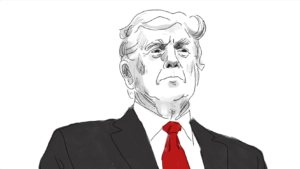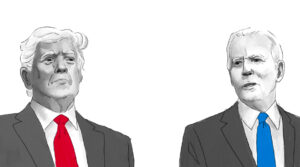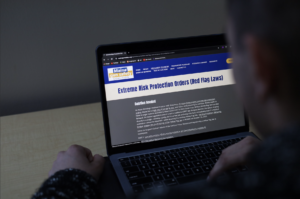The fourth presidential impeachment deliberation in the country’s history entered its fourth month on Sunday, with ongoing efforts by the House Judiciary Committee to draft articles of impeachment concerning President Donald Trump’s decision to temporarily revoking Ukrainian military aid while requesting an investigation of former Vice President Joe Biden’s alleged corruption.
With two consecutive weeks of Congressional hearings on the actions and motives of Trump’s Ukrainian policy now concluded, the House Intelligence Committee’s Democrat and Republican members each compiled reports summarizing their respective understanding of the issue and their respective cases for and against a presidential impeachment. These reports were then submitted to the House Judiciary Committee, which is historically tasked with drafting articles of impeachment.
The first hearing in the Judiciary Committee’s process, and the first since the House Intelligence Committee hearings were concluded, was held Wednesday to analyze the constitutional legality of impeachment under the present circumstances. Distinguished professors of constitutional law Noah Feldman, Pamela Karlan, Michael Gerhardt and Jonathan Turley testified before the Committee on the meaning of Article II, Section IV in the U.S. Constitution, wherein the offenses for which a president may be impeached are mentioned, and the legal nature of the President’s actions concerning Ukraine. Of the four professors, only Turley believed that impeachment would be inappropriate based on the facts presented.
“If you make a high crime and misdemeanor out of going to the courts, it is an abuse of power — it is your abuse of power,” Turley claimed. “You’re doing precisely what you’re criticizing the president for doing. We have a third branch that deals with conflicts of the other two branches, and what comes out of there and what you do with it is the very definition of legitimacy.”
Democrat lawmakers also questioned the witnesses on whether attempts had been made by the president to obstruct Special Counsel Robert Muller’s investigation of Russian interference in the 2016 election. Professor Michael Gerhardt, referencing the Muller report, claimed that “a number of facts … indicate the president of the United States obstructed justice,” and argued that such conduct was warranting of impeachment.
While away during Congress’ Thanksgiving recess, House Judiciary Committee Chairman Jerrold Nadler of New York offered members of the Administration a Sunday, Dec. 8 deadline to participate in Monday’s proceedings or any further rounds of Judiciary Committee hearings. Nadler’s offer was rebuked shortly thereafter in a letter by White House counsel Pat Cipollone, who claimed that such hearings lacked “any semblance of a fair process,” and forcefully announced the Administration’s declination to participate in the Judiciary hearings.
Although Democratic members of the Judiciary Committee have expressed their desire to question both active and former members of the 45th Administration, they have also expressed their contentment in the evidence already presented during House Intelligence Committee hearings, arguing that it alone is enough to warrant debate on potential articles of impeachment.
The Intelligence Committee’s two weeks of hearings featured testimony from a series of civil servants who were either personally involved in orchestrating the President’s Ukrainian policy, or whose expertise was pertinent to American-Ukrainian relations.
On Nov. 20, the American Ambassador to the European Union Gordon Sondland testified that he had presumed the existence of a “quid pro quo” exchange between President Trump and Ukrainian President Vladimir Zelensky in the July 25 phone call, but that President Trump had personally denied to him the existence of any such agreement. A day later, former White House official Fiona Hill told the Committee that she had considered President Zelensky’s possible White House meeting to be predicated on an investigation of Ukrainian interference in the 2016 election, something she claimed was a fictional narrative “perpetrated and propagated by Russian security services themselves,” which was meant to advance Russian political agendas in the U.S.
On Dec. 5, House Speaker Nancy Pelosi announced that the House of Representatives will be moving forward with the articles of impeachment, stating that “In the course of today’s events, it becomes necessary for us to address, among other grievances, the President’s failure to faithfully execute the law.”
“The President has engaged in abuse of power undermining our national security and jeopardizing the integrity of our elections. His actions are in defiance of the vision of our Founders and the oath of office that he takes ‘to preserve, protect and defend the Constitution of the United States. Sadly, but with confidence and humility, with allegiance to our Founders and our hearts full of love for America, today, I am asking our Chairmen to proceed with articles of impeachment,” Pelosi said.












